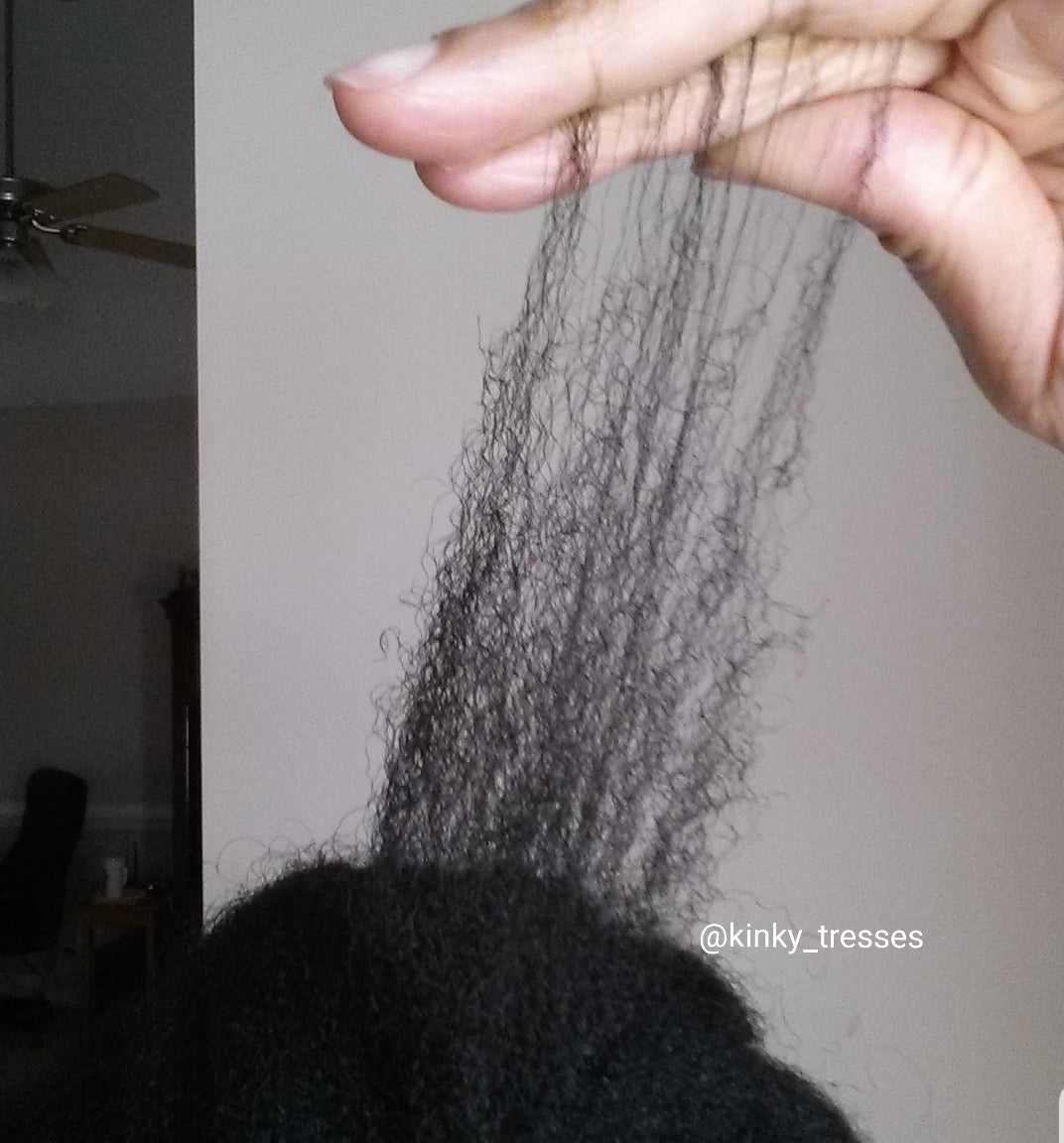Table Of Content

Vitamins C, D3 and biotin can help reduce hair breakage by improving its health (1). Include foods rich in these nutrients in your diet for good hair. They are also available in supplements form if you are unable to consume such foods or have a deficiency. Letting your hair dry naturally is important to avoid long-term damage. Your hair is in a vulnerable state when you’re out of the shower.
What Causes Curly Hair? What Causes the Hair to Curl?
Let's embark on a journey to uncover the root causes of hair breakage and discover ways to achieve lustrous, damage-free tresses. Avoiding surfaces that cause excessive friction can only do favors for your hair, whether or not you're already experiencing damage with your locks. Sleep on a silk pillowcase and use a microfiber towel post-wash to protect your hair from rubbing up against abrasive fabrics. If you're wondering if your hair is damaged, there are some signs to look out for.
Prevent Heat Damage
How to Treat Menopause Hair Changes, Loss, and Thinning - Oprah Mag
How to Treat Menopause Hair Changes, Loss, and Thinning.
Posted: Fri, 05 Aug 2022 07:00:00 GMT [source]
It’s also helpful to dampen your hair and apply a detangler before breaking out your detangling tools. In the interest of full disclosure, you should know that there is no way to fix hair breakage that has already occurred. Once a strand has broken off, that’s it – there is no way to restore that strand. Though hair breakage anywhere on the head is alarming, it’s especially concerning when it pops up right at the top of your head.

Use a heat protectant
Oiling can be good for your hair, potentially, says Dr. Spann. There’s a lot of misinformation on the internet, hair oiling can help "protect your hair from damage, improve the look of split ends, and prevent breakage," she says. "It’s especially useful if your hair has been stripped by washing and styling products." Preventing hair breakage at the crown of the head doesn’t have to be complicated or time-consuming.
When damage shows up as frizz or flyaways, "this could be caused by dryness from weather, over-shampooing or shampooing the ends of your hair," says Nation. The remedy for this, he says, is in added hydration and proper haircare that preps the strands before any styling. Whether you color your hair, use hot tools, or tie it up every day, these behaviors take a toll on our strands. And tending to our tresses requires small, consistent adjustments—there is not one band-aid fix for damaged hair. Excessive combing is something that is completely forbidden.

Being gentle with your hair while it’s experiencing change is important so as not to exacerbate any thinning. It goes without saying that excessive heat and chemical treatments aren’t a good idea, but try and opt for protective hairstyles too. “Opt for hairstyles that minimize tension on the hair follicles, such as loose braids, buns or ponytails,” advises Gaboardi. “Avoid tight hairstyles and hair accessories that pull on the hair and handle your hair with care to minimise breakage and damage. One of the more common causes of hair breakage is acquired trichorrhexis nodosa. It is more common in those of African heritage and is directly affected by hair grooming and styling practices and proper cleansing product use, as suggested by scientists.
What are the main causes of hair breakage?
Some people may experience excessive hair loss shortly after giving birth. This type of hair loss is a temporary condition and usually resolves within a year or sooner. With the knowledge of the common culprits behind hair breakage and effective repair strategies, you can now take proactive steps to achieve healthy, resilient locks. Remember to embrace good haircare habits, seek professional guidance when needed, and prioritize the health and well-being of your hair. Trichology, the study of hair and scalp, plays a pivotal role in diagnosing and treating various hair and scalp conditions. If you're experiencing persistent hair breakage or other hair-related issues, consider consulting a trichologist who can provide expert guidance and personalized solutions.
One older 2009 clinical trial found that brushing less frequently led to reduced hair loss in women. Also, be sure you shampoo gently at the scalp and apply conditioner smoothly from your ends to your roots. It’s also important to protect your hair before you apply the heat. You should also try to restrict heat-styling to no more than once per week and always use a heat protectant.
This type of breakage will often require very intensive treatment and conditioning compared to moisture-induced breakage issues. Achieving the right balance will involve using the right combination of moisture and protein-based products that suit your hair type. Your hair’s moisture content depends on the amount of protein it contains. Protein loss caused by chemical treatments is almost certainly followed by moisture loss to some extent.
"Unlike baby hairs or new growth, broken hair will have varying lengths and a drier texture," explains Toronto-based board-certified dermatologist Geeta Yadav, M.D. The anti-inflammatory and moisturizing properties of this oil is what makes it effective in reducing breakage. It can help treat inflammation caused by fungal infections on your scalp and contribute to hydrating your hair. Brushing your hair too hard can result in broken strands of hair. It can also pull out your hair from its roots, damaging it. The American Academy of Dermatology recommends that you brush your hair gently only when you need to style it while stepping out.
This can tempt you into washing your hair more than necessary. We recommend that you deep clean your hair with clarifying shampoo to remove product buildup from your hair. After clarifying, you can use a 30-to-45-minute deep conditioning treatment once or twice a week. Protein-induced breakage can take a couple of weeks to repair.
Ideally, if you’re experiencing breakage, you’ll avoid using heat styling tools on your hair altogether. However, it’s important to understand that high heat settings are unnecessary when using a flat iron, blow dryer, curling iron, or other hot tools. In the natural day-to-day grooming of your mane, you are bound to lose some hair strands. Daily hair shedding is expected through hair drop and shaft breakage, especially during certain seasons of the year.
"If you are on medications that may be affecting your hair loss," says Nation, "I would consult with your doctor." You can cut your split ends no matter when and how often. It is important to remember that you shouldn’t pull apart split ends. This is an excellent treatment that provides your hair with deep hydration, while cider gives shine. It is great for all of you with split ends and dull hair.
Proteins are commonly found in products like protein-reconstructor conditioner treatments, leave-in conditioners, moisturizers, and instant conditioners. Proteins attach to hair cuticles and help rebuild, albeit temporarily, any weak areas. A protein-based hair product reinforces your hair shafts, giving them the strength to fight off breakage. Achieving moisturizing success and fighting hair breakage will ultimately be determined by how you apply your hair products. Using oils without moisturizers or before applying a moisturizer will seal out moisture from the hair strand.
Say goodbye to breakage and hello to the luscious, damage-free hair you deserve. A healthy scalp provides the foundation for strong, resilient hair. Scalp issues, such as dandruff or excessive dryness, can indirectly contribute to hair breakage.
Hair oiling is an ancient Indian practice rooted in Ayurveda. It's "a process of infusing your hair with natural oils to restore luster and hydrate hair," says dermatologist Candace Spann, MD. If you want to pull your hair back, use ouchless scrunchies to minimize tension on your hair strands at the top of the head. Always start detangling from the ends and move toward the roots to prevent breakage.
No comments:
Post a Comment